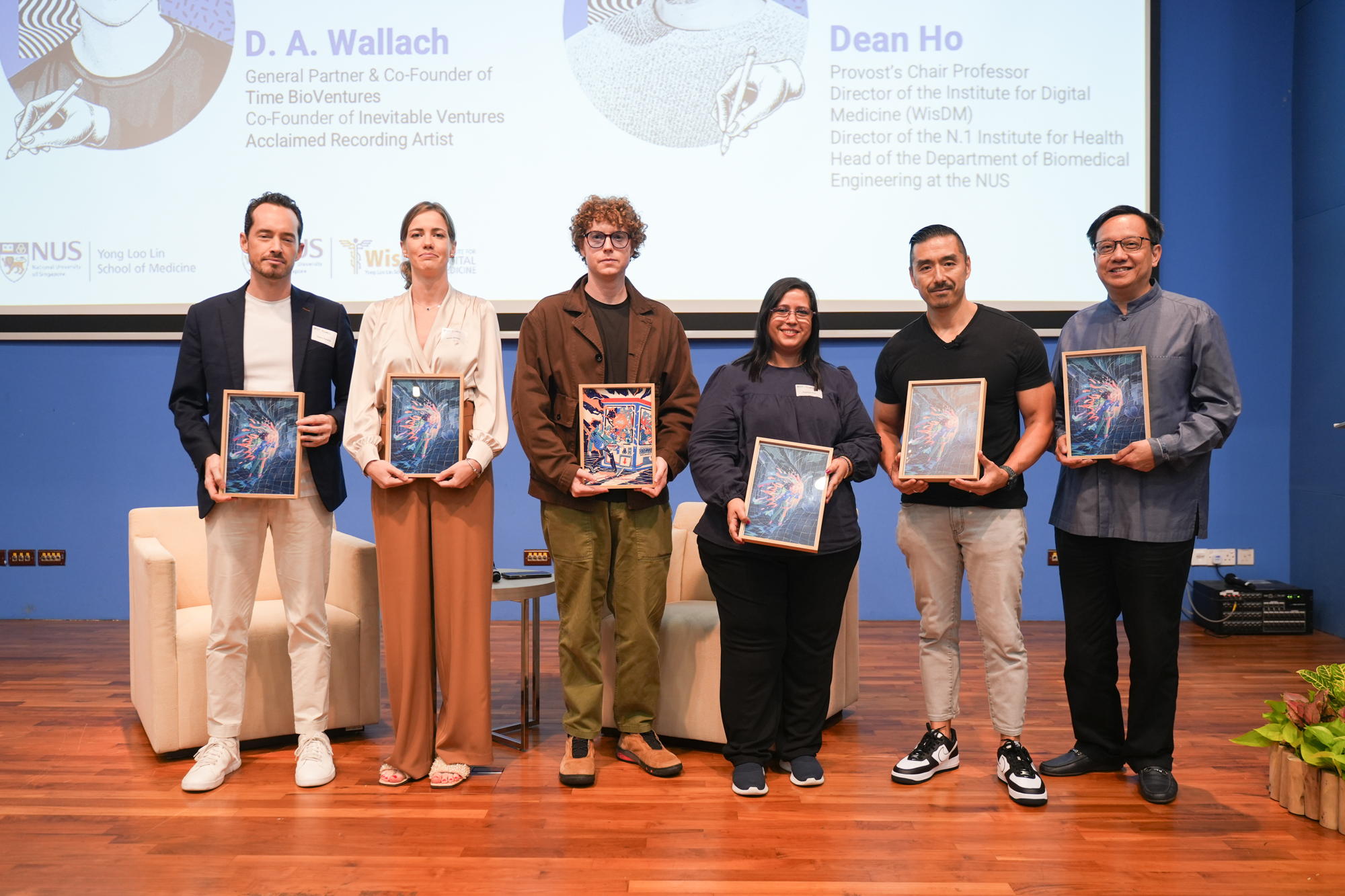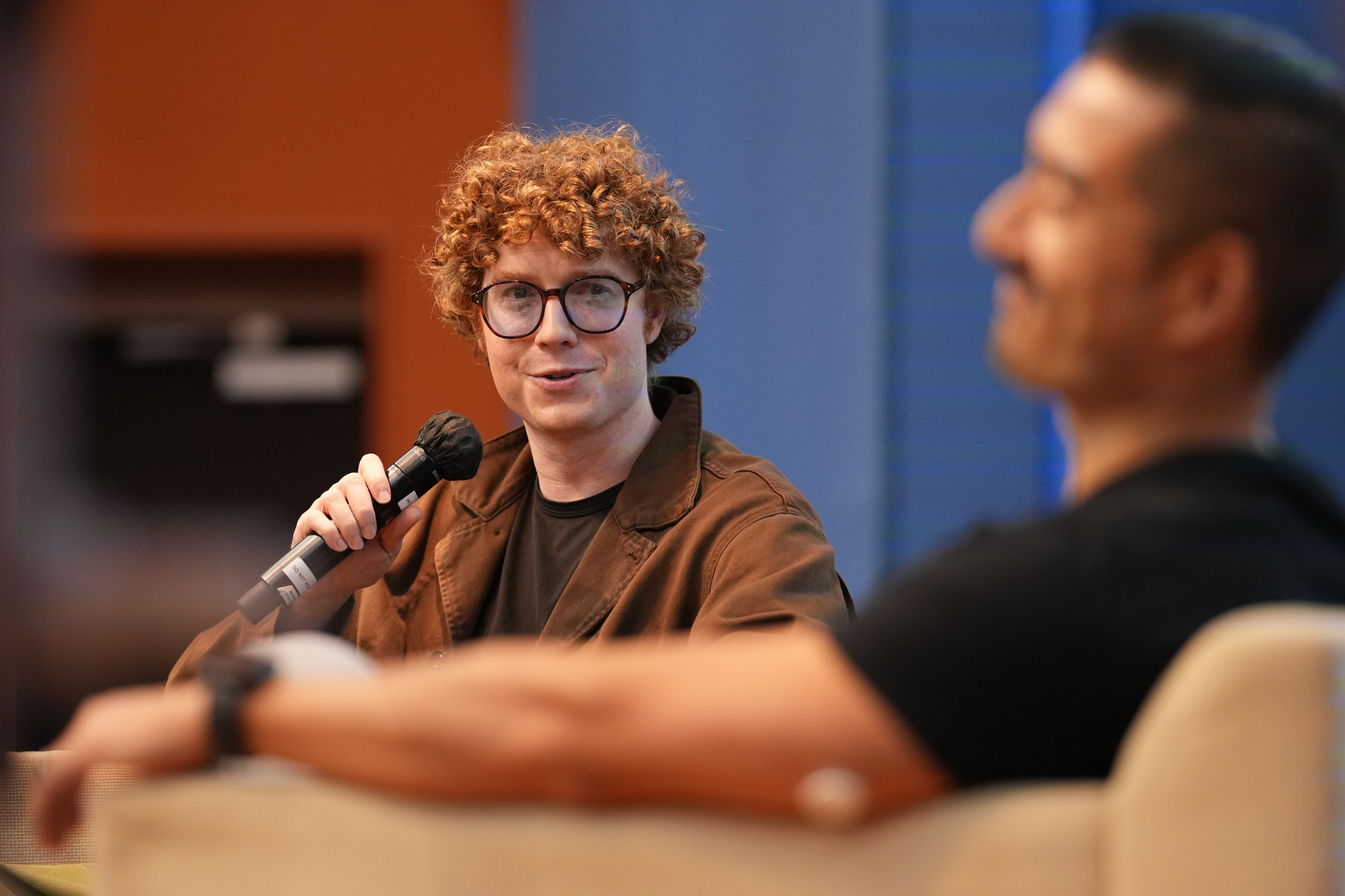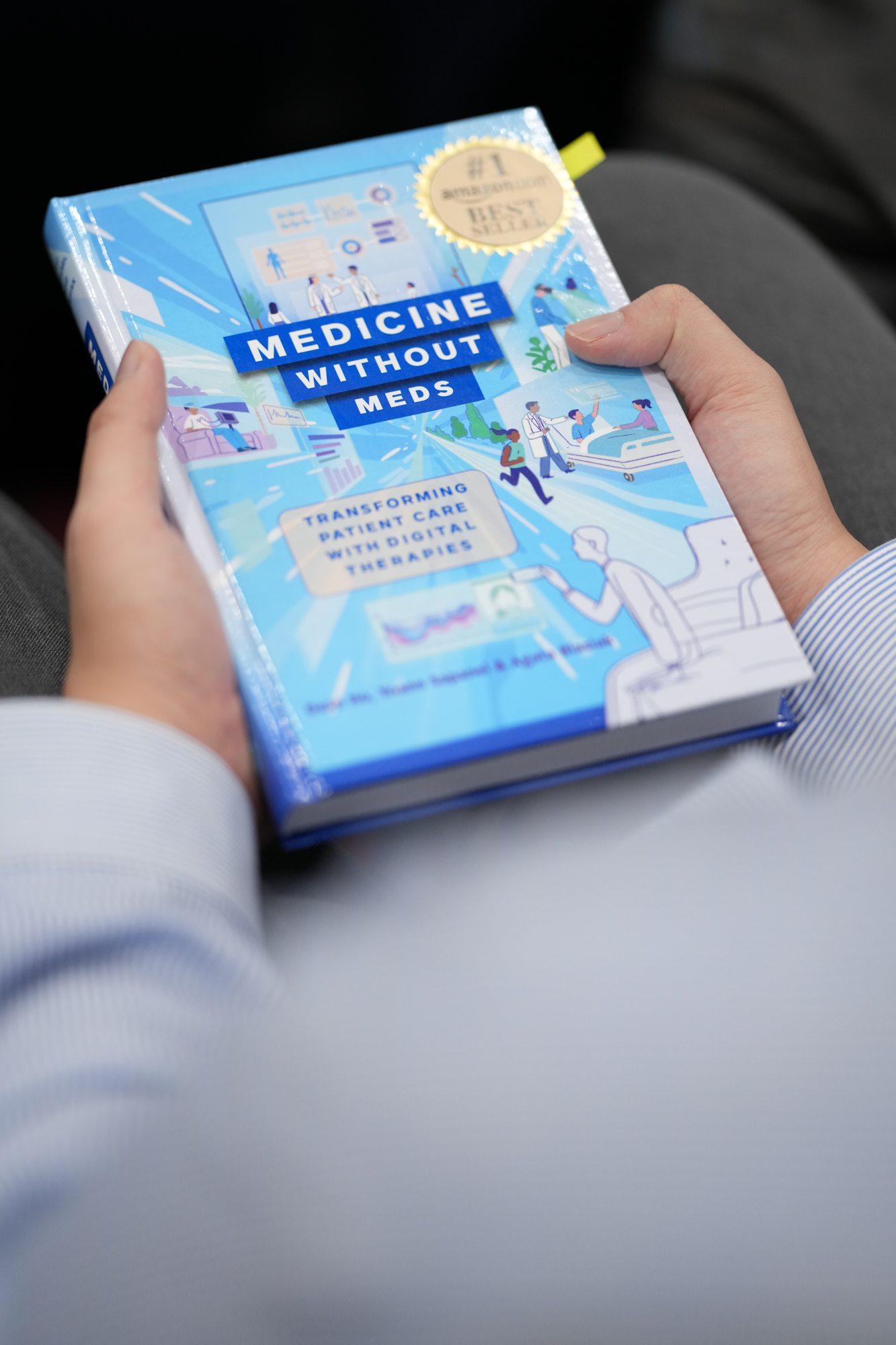It starts with a spark of passion: American musician and venture capitalist investor D.A. Wallach shares insights at launch of new book, Medicine Without Meds: Transforming Patient Care With Digital Therapies
Published: 28 Nov 2023

(From left) Yoann Sapanel, Dr Agata Blasiak, D.A. Wallach, Poonam Rai, Prof Dean Ho, and Prof Chong Yap Seng, Dean of NUS Medicine, celebrating the launch of a new book by the Institute for Digital Medicine, NUS Yong Loo Lin School of Medicine
“I’ve never had a plan in life. For better or worse, I’ve always followed where my curiosity has led me,” shared American musician D.A. Wallach, as he traced his journey in starting a rock band and pursuing his hobby as a venture capitalist, at an event held at the NUS Shaw Foundation Alumni House on 16 November 2023. An acclaimed recording artist who has toured with Lady Gaga, Weezer, and Blink 182, acted in the film La La Land which received 14 Academy Award nominations, and performed on TV Shows including Jimmy Kimmel Live and Late Night with Jimmy Fallon, D.A. was named to the Forbes’ inaugural 30 Under 30 in the music category in 2011.
Organised by the Institute for Digital Medicine (WisDM) at the Yong Loo Lin School of Medicine, National University of Singapore (NUS Medicine), over 160 guests gathered to celebrate its launch of a new book titled “Medicine Without Meds: Transforming Patient Care With Digital Therapies”—which explains the approach of Digital Therapeutics or DTx, believed to be one of the most promising avenues for improving patient outcomes.
The book’s foreword was written by D.A., co-founder and General Partner of Time BioVentures, who seeks to reinvent medicine through breakthrough start-ups like Beam, Glympse, Doctor on Demand, Devoted Health, and Neuralink. Since 2015, he set out to build a career as a venture capitalist, backing a series of industry-defining technology companies including Spotify, SpaceX, Ripple, The Boring Company, and Memphis Meats. He brings this experience to a new generation of talented entrepreneurs in the life sciences.
In a chat with the Institute’s director Professor Dean Ho, D.A. gave his take on how to recognise the potential for rapid growth and scalability in small businesses. He said, “It starts with a spark of genuine passion. Occasionally, something stands out and we listen to our instincts. It starts with falling in love, and we then enter a very protracted process—where we evaluate every dimension of the risks associated with the project. After several rounds of assessments and conversations, we tend to have a better understanding of the risks and weaknesses of the plan. If we still want to invest in the business by the end of this process, that is when we go ahead to do it. It’s a combination of being intuitive on one hand, but also rigorous and systematic on the other, so that we ensure diligence in the process and avoid making stupid mistakes.”

D.A. Wallach discusses insights from his experience with Prof Dean Ho
D.A. is also the co-founder of the non-profit Franca Fund for preventive genomics, an advisory board member of No Patient Left Behind, and a member of the Board of Trustees of the Santa Fe Institute. In responding to a question on how he would re-imagine medical education if he were to establish the ‘D.A. School of Medicine’, he remarked that the system in America makes it too difficult for one to be a doctor. Focusing on students who are extremely good with memorisation and cognitive tests—but often not the strongest in emotional intelligence, the system has created a population of healthcare workers with computer-like cognitive talents, reckoned D.A.
He reflected, “The big realisation is, now that we have computers that can help, that skill set is no longer what matters the most. If I were to start a medical school, I would focus on identifying and training people who can work well in collaboration with technology and software, because having encyclopaedic memory is not what will matter to the physicians of the future. Instead, it will be the ability to rapidly access information to enable, among other things, identifying patients with rare diseases. Today, too many patients go on diagnostic odysseys because no one can pattern-match their disease with what was learned in medical school or seen clinically. We have an opportunity now with technology to give humans a lot more leverage—and I think that will be the crux of the future.”

A copy of “Medicine Without Meds: Transforming Patient Care With Digital Therapies”, written by researchers at WisDM, NUS Medicine
Written by Prof Dean Ho and his team members from WisDM, Yoann Sapanel and Dr Agata Blasiak, the book offers a blueprint for entrepreneurs and innovators to develop digital solutions and AI-driven innovations for patients. In October 2023, the book was the best seller across all categories for English books at Kinokuniya, and on Amazon Singapore, in the Health Policy, History of Medicine, Basic Sciences and Health/Medical Law categories, and claimed the top 30 on Amazon United States, in the Health Policy category.



